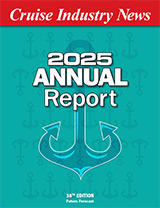Complete search and rescue cover around Africa’s coast was secured on Thursday (3 March 2011) with the signing, in the presence of representatives from Cape Verde, the Gambia, Guinea Bissau, Mauritania, Morocco and Senegal, of an ad-hoc multi-lateral co-operative agreement on the North and West African sub-regional Maritime Rescue Coordination Centre (MRCC), which establishes a new Morocco MRCC near Rabat, with its associated sub-centres.
The Morocco sub-regional MRCC, located at Bouznika, a seaside area 20 Km from Rabat, will join those already commissioned in Mombasa, Kenya, in 2006; in Cape Town, South Africa, in 2007; in Lagos, Nigeria, in 2008; and in Monrovia, Liberia, in 2009, thus completing the final link in the chain of sub-regional African MRCCs, each with its own network of associated sub-centres.
The establishment of the Rabat MRCC completes a process, which dates back to the October 2000 IMO Conference on Search and Rescue and the Global Maritime Distress and Safety System (GMDSS), which IMO convened in Florence, Italy. The Conference had recommended a regional approach to the provision of search and rescue services in western, southern and eastern parts of Africa at countries selected for their strategic location.
Among several others, one of the resolutions adopted by the Florence Conference invited the African countries bordering the Atlantic and Indian Oceans, from Morocco to Somalia, anti-clockwise, as well as the nearby Atlantic and Indian Ocean Island States, to establish five sub-regional centres and 26 sub-centres to cover their entire coastline areas for search and rescue coordination purposes. The Conference envisaged that, in this manner, all the proposed centres could work co-operatively to provide search and rescue coverage in what had previously been identified as one of the areas suffering most from a lack of adequate SAR and GMDSS infrastructure.
Speaking at the signing ceremony, IMO Secretary-General Mr. Efthimios E. Mitropoulos said the agreement, which was signed today by Cape Verde, the Gambia, Guinea-Bissau and Morocco, represented not only a major step forward for the countries concerned, but also for the entire north-western region; for Africa; for the maritime and shipping world as a whole; and for the international community of seafarers, who should feel confident that, should they find themselves in distress, their calls for assistance will not be left unattended.
“Bearing in mind the recently concluded “Year of the Seafarer”, I rejoice at the thought of the many persons who, in the future, will have cause to be grateful to those who man these SAR facilities for saving their lives and for the suffering and grieving their families and friends will be spared of, as a consequence of the services provided. Establishing this network of rescue centres is nothing short of a major humanitarian undertaking and all those who have been involved in turning the dream of the Florence Conference into today’s reality deserve great credit for such an important achievement,” he said.
“The sharing of information derived from the centres we establish will also play an important role in the fight against piracy, kidnap and ransom on the high seas – something, which IMO, and the whole maritime community, has pledged to tackle with renewed vigour during 2011 in line with this year’s World Maritime Day theme “Piracy: Orchestrating the response”. This network of rescue centres (especially those covering the western Indian Ocean, which recently has been the theatre of activity of pirates operating out of Somalia) has the potential to play a significant role through information-sharing activities with other regions, and I have no doubt that the positive contribution it will make in this regard will be widely acknowledged and appreciated,” he said.



